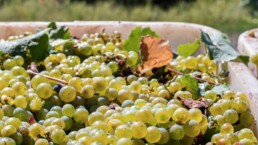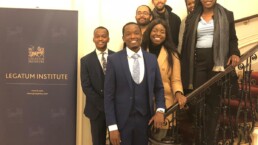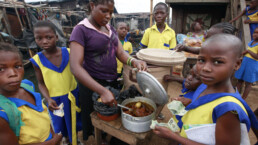Africa is rich in natural resources and land. Yet the continent has an annual food import bill of $35 billion. This yearly bill is estimated to rise to $110 billion by 2025. According to Akinwumi Adesina, President of the African Development Bank (AfDB), this state of affairs “weakens African economies, decimates its agriculture and exports jobs from the continent”.
Food insecurity remains a major challenge in Africa, with almost 20% of the population suffering from starvation and malnutrition. At the same time, the continent has the potential and resources to feed itself and the rest of the world. Raising productivity in agriculture is vital to transformative growth. In particular, for the majority of smallholder farmers in rural areas, who are responsible for producing up to 80% of the food we eat in Sub-Saharan Africa.
Working in the field on Kailend’s sustainable agriculture project has given me a glimpse into the lives of several hard-working smallholder women farmers in rural communities. Those who live and work in remote areas often lack access to sustainable farming training methods, crucial and up-to-date information, basic inputs and start-up capital. Strategic collaborations and a pooling of resources between farmers, private investors, governments and international organizations could help modernize and empower a large demographic of subsistence farmers. Investing in smallholder farmers and profit sharing between stakeholders at harvest should be promoted by different regional bodies to boost food production and help curb the continent’s food import bill.
Programs like the West African Agriculture Productivity Program (WAAPP) are a great example of how cross-border knowledge sharing and collaboration can impact the lives of people for the better. Working across agricultural value chains, the program supports African scientists in generating improved crop varieties, provide climate-smart farming techniques, post-harvest tools and other technologies. It then helps extension workers deliver these technologies to farmers so they can produce healthier and more marketable foods. Other great examples of collaborative projects include FarmCrowdy and ThriveAgric, two crowd-farming platforms in Nigeria that are enabling working-class Nigerians to crowd-sponsor farming projects and earn a share in the returns at harvest time.
Farmer cooperatives present a unique opportunity to revolutionize the agricultural sector in Africa. Several well-structured African cooperatives are already defying the odds by combining profit making with social impact. Kibinge Coffee cooperative in Uganda is thriving by using this model. Despite the progress, African countries have yet to achieve a sustained and large-scale increase in staple crop yields as a result of cooperative action. In order for this to happen, successful collaboration models should be supported and up-scaled from local and national levels all the way up to regional and continental levels.
In July 2018, I had the privilege to participate in the Obama Foundation Leaders: Africa initiative. The leadership scheme convened young and emerging change makers from across the continent. This pan-African exchange re-affirmed to me that the path to achieving common goals and African self-reliance lies in fostering mutually beneficial relationships as well as regional and continental exchange programs.
Kofi Annan inspired and taught us all so much during his lifetime. At the recent convening of the Obama Foundation Leaders: Africa in Johannesburg, he spoke about never being too young to lead or too old to learn. Something else he said that stuck with me was: “Move forward together, you cannot do it alone. Build these relationships and networks, it helps all of us.” Encouraging the sharing of knowledge and innovations between governments, regional bodies, entrepreneurs, businesses, schools, universities and young leaders will help to advance sustainable development and growth in Africa. Food insecurity, climate-related threats to food production and barriers to intra-African agricultural trade are issues that go beyond state borders. African countries cannot go it alone.
Young African leaders are already making a difference in their communities.
Aminetou Bilal from Mauritania is President of Selfie Mbalite, an NGO promoting ecological development. Racine Ly from Senegal is the founder of Nataal-Imaging, which uses drones and satellite images to monitor plant health to improve agricultural practices. Amos Kiyingi is the Director of Uganda Unites, a youth-led movement that connects students from different religious and ethnic backgrounds to equip and inspire them to be agents of change in their communities. Sunday Falaye is the founder of Econergco, an eco-friendly energy company that provides cost effective hybrid solar power systems and lighting solutions for homes and agriculture irrigation.
In the spirit and words of Kofi Annan, young leaders like Aminetou, Racine, Amos, Sunday and many other inspiring African change makers should be supported in strengthening ties, sharing best practices and holding each other accountable for playing a part in the youth ecosystem that will bring about the lasting change we want to see in our communities, on the continent and beyond, starting with the agricultural sector.
The views expressed in this article are those of the author alone and not the Future Africa Forum.
The views expressed in this article are those of the author and do not necessarily reflect the views of Future Africa Forum. Future Africa Forum is a pan-African policy think-tank and policy advisory consultancy headquartered in Nairobi, Kenya.



